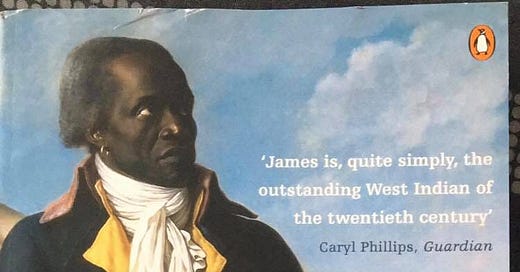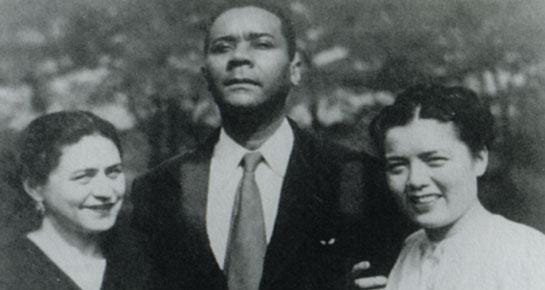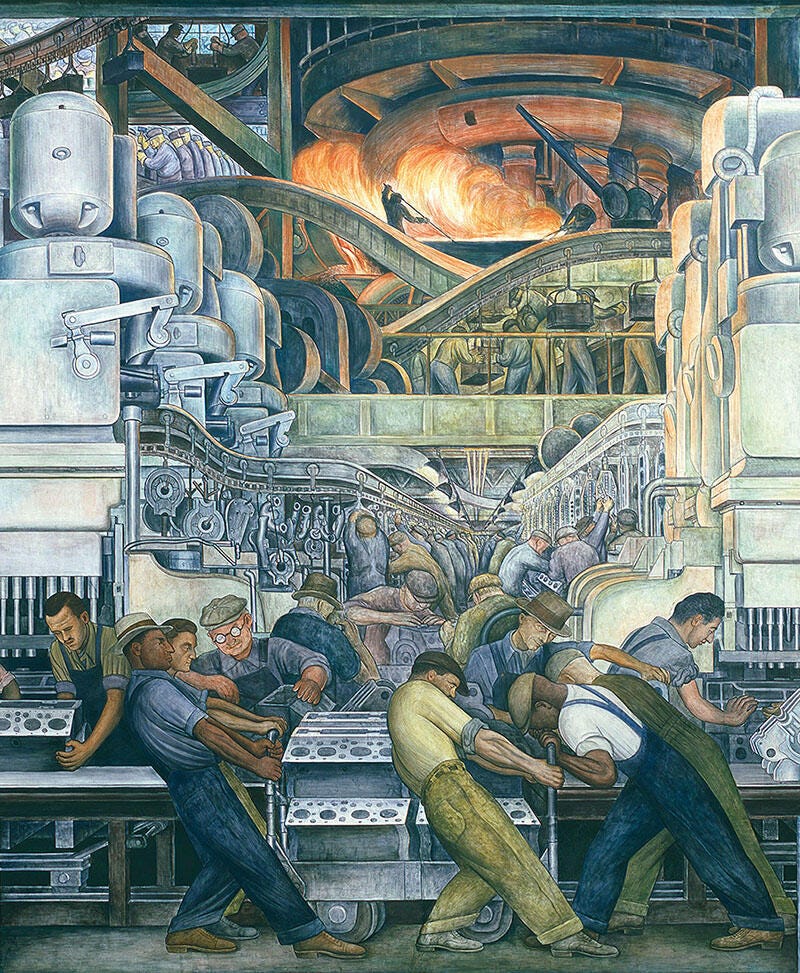CLR James was born in Trinidad in 1901 and died in London in 1989. In 1932 James left Trinidad and sailed to England to help cricketer Learie Constantine write his autobiography. After working for the Manchester Guardian as a cricket correspondent, James moved to London. He took part in the Pan-African movement, the Independent Labour Party and got involved in Trotskyist politics. James had several books published, including, in 1936, the highly-acclaimed Black Jacobins, the history of Toussaint Louverture and the Slave Revolt of 1791 in the French Caribbean. The first and only successful slave revolt in history, it led to the abolition of slavery by the French revolutionaries in 1794. In 1802, however, slavery was reinstated by Napoleon. Toussaint was betrayed by his comrades and delivered to the Napoleonic regime to die in a French prison in 1803. Toussaint's historical legacy is that he raised the important question: “are the universal human rights coming out of the Enlightenment and French Revolution truly universal?” - or, just white, male and European?
In early 1939 CLR James relocated to the USA and travelled to visit Trotsky in Mexico. Following the Stalin-Hitler Pact in 1939, Trotsky’s designation of the USSR as a degenerated workers' state was disputed within the movement. Max Shachtman argued that it was bureaucratic-collectivist. By 1940 James had decided it was state-capitalist. Raya Dunayevskaya (1910-87), formerly Trotsky's Russian language secretary in Mexico, came up with the same analysis as James, separately but at exactly the same time. Together they founded the Johnson-Forest Tendency within the US Workers Party, which had split from the Socialist Workers Party (US section of the Fourth International) months before Trotsky’s assassination (Joe Johnson was CLR James; Freddie Forest was Raya Dunayevskaya; the third leader of the tendency was Grace Lee - later Grace Lee Boggs, 1915-2015).
In 1947 the JFT rejoined the Socialist Workers Party moved to Detroit, partly because it had become the biggest and most multi-ethnic industrial city of the world, and partly to distance themselves from "petty-bourgeois opportunism" of the intellectuals and the Workers Party leaders in New York. The JFT’s four years in the SWP seems to have consolidated their base amongst miners and auto-workers, but as far as the SWP membership a whole went, their efforts seem to have been a debilitating waste of time. This unhappy relationship ended in 1951. The JFT left the SWP and founded the journal, Correspondence, in Detroit.
Just how far James and his comrades had moved from Trotskyism is evident from the correspondence between the leaders about things well beyond the ken or interest of the unhappy SWP. In 1948 James wrote Notes on Dialectics, a study of Hegel's Science of Logic. This was a 250 page mimeographed document for internal discussion within the Johnson-Forest Tendency (it was eventually published in book form in Britain in 1980).
Hegel begins his 900-page masterpiece with the movement of philosophical categories: Being, Nothing and Becoming. In James’ interpretation if you determine that you and your experiences are something (like in “I think, therefore I am”), you are also determining that you and your experiences are not something else. Hegel's Logic tells us – as an inescapable fact of life – that we come from nothing, but we are always trying to become something. This is true for us as individuals, from the day we are born; true for the development of philosophical Logic itself from the Ancient Greeks to the Enlightenment; and true for historical movements. Marx argues that the proletariat is revolutionary or it is nothing; and by negating capitalism it negates itself. It is this historical movement of the proletariat that James is primarily concerned with.
Greek democracy, forgotten under the Roman Empire and feudalism, returns at a new and higher level with the English Revolution of the 17th century. It is defeated, but it comes back: first with the American Revolution of 1776, then with the French Revolution of 1789. The French Revolution also gives birth to the idea of communism (Marx was quick to point that out that it was not he or Enge;s who invented it).
James brilliantly uses Hegel’s argument against Kantianism to expose the fixed determinations and categories of Trotskyism in its failure to understand the class nature of the USSR. The Johnson-Forest group argued that what made Stalinism in 1939 different to the 2nd International betrayers of 1914 could only be grasped by grounding the category of state-capitalism in the dialectic of Labour and Capital, as set out in the categories of Marx’s Capital. No wonder, James said, all of Trotsky’s predictions for World War turned out wrong. On the "Hegelian" aspect of Lenin's State and Revolution James saw that Lenin propounded a new universal in calling for population "to a man" to run production and the state. As Hegel puts it, no doubt with the French Revolution in mind:
“When external actuality is altered by the activity of the objective notion and its determination therewith sublated, by that very fact the merely phenomenal reality, the external determinability and worthlessness, are removed from that actuality.”
In Hegel's terms the “objective notion” becomes the General Will that the potential of revolutionary change is actually more real than “the merely phenomenal”. “The fact IS, BEFORE it exists.”
The point CLR James makes in 1948 is that both social democracy and the communist parties had become deadly enemies of the proletariat, because they were both representations of capital. Social democracy represented a section of the proletariat – the skilled workers – who had been incorporated by monopoly capital; stalinism represented the petite bourgeois, technocratic new class of state capitalism. So, James argues that with the millions of workers organised into unions by European Stalinist parties (or, as in England and America, social democrats), there was nothing left to organise. James therefore counterposes spontaneous class struggle to organisation. The historic task of the workers movement had become how to negate the vanguard party. Spontaneous conscious actions by the masses, already organised in fighting form in their workplaces, would spill over into the surrounding communities and negate all the abstract universals that previous revolutions had thrown up.
After leaving the SWP, the Johnson-Forest Tendency published the journal, Correspondence, in Detroit, but in 1955 Raya Dunayevskaya and Black auto-worker, Charles Denby, broke away to found News and Letters and work on Dunayevskaya’s forthcoming book, Marxism and Freedom.
1958 saw the publication of the pamphlet, Facing Reality: The New Society and How to Bring it Closer, by CLR James and Grace Lee Boggs, with an introduction by Cornelius Castoriadis of the French group, Socialisme ou Barbarie group (see next post). Facing Reality threw out any concept of organized mediation in the world of class struggle:
“the organization will not seek to propagate it [socialism], nor to convince men of it, but to use it so as the more quickly and clearly to recognize how it is concretely expressed in the lives and struggles of the people.” Believing socialism to be “inherent in the masses,” the only role left for revolutionaries was to tell anyone who didn’t know it that this was so.
This perspective raised the question of the organisation’s “historic right” to exist. What was it?
[Continuing with the theme of alternatives to vanguardism, the next post will be on Cornelius Castoriadis and his Socialisme ou Barbarie group]






